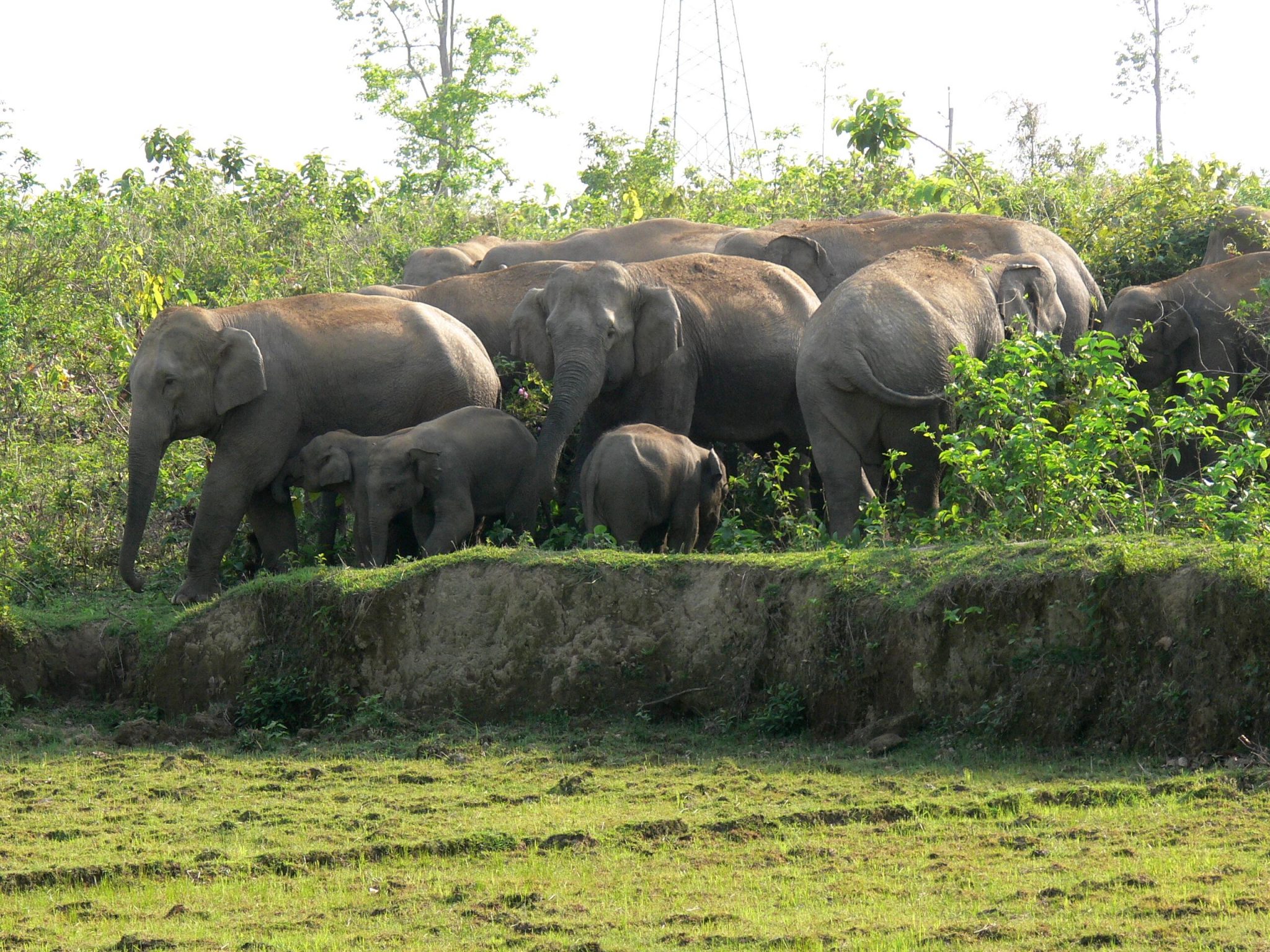For over ten years Chester Zoo’s Assam Haathi Project-in partnership with Ecosystems India-has been working to reduce human-elephant conflict. With between just 40 and 50 thousand Asian elephants remaining-and 50% of these being in India-Assam in the North East of India holds one of last strongholds for the remaining wild population.
Conflict between elephants and people is a challenge in Assam. Read more about Human-Elephant conflict-here. This conflict is unsustainable for both the survival of the elephants and the livelihoods of the local people.
In February 2015 twelve members of zoo staff will be taking part in an expedition to the Assam Haathi Project. Here they will be working closely with local villages in areas of human-elephant conflict. The team will be offering support to long-term strategies for elephant conservation in these areas. Looking both at the techniques that have been developed to reduce conflict-and methods of alternative livelihoods to reduce the village’s dependence on crops that are raided frequently by elephants.

The team will be led by the zoo’s managing director-Jamie Christon. Jamie will be offering help and advice to the women’s self-help groups who set up and run small businesses to produce-market and sell products such as woven products and bamboo crafts-to increase income to their village. Another item that is sometimes produced for consumption and sale is honey-so our curator of horticulture and botany-Mark Sparrow – who is also an expert bee keeper – will be joining the team to offer support in this area.
Our lead horticulturist Maile Belanger will be working with villagers to look at how they can increase the variety or productivity of crops that are grown-and our twilight keeper (and personal farm owner!) Vicki Small will be focusing on how villages can improve the care and productivity of domestic animals they keep.
Finally the zoo’s electrician Peter Davies will be offering practical advice and maintenance for the solar powered electric fences that are used to protect crops-and spot lights that are used to direct elephants away from villages at night.
As well as this-the team will be busy helping to install sustainable cook stoves in households within the different villages and helping with general construction!
Our expeditions are also a way to offer life-changing opportunities to our staff members enabling them to see first-hand the conservation work that we are involved in-so the remainder of the team is made up from volunteers whose names were picked out of a hat. These volunteers will be trained up in relevant areas to support the rest of the team-and will be offering support in general maintenance and construction around the villages.